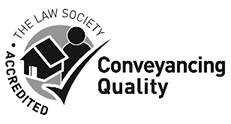Dealing with the Probate process can seem like a daunting task, especially if you have not had any experience in dealing with this type of thing in the past. Most people have heard of the terms “Probate” and “Inheritance Tax” but are unsure of the difference between the two and what they mean.
Probate is the legal right to deal with someone’s property, money and possessions (their estate) after they have died. The Executor (or next of kin if there is no Will) will apply to the Court for a Grant of Probate. Once obtained they will be able to deal with the assets in the estate.
Valuing the Estate
Prior to applying for Probate, the value of the estate has to be determined. The reason for this is to work out whether the estate is liable to pay inheritance tax. Currently there is a nil rate band of £325,000 given to everyone who dies. Therefore, if an estate is under £325,000, there will be no inheritance tax to pay. There are also some circumstances in which there will be an exemption from paying inheritance tax. These include assets that pass to a spouse or charity, or if there is an agricultural or business exemption.
To calculate inheritance tax you will need to obtain values of all of the assets as at the date of death. Any debts will then be deducted before the value is calculated.
In addition to the nil rate band, the estate may also benefit from the residential nil rate band if there is a property that has been the deceased’s main residence that is passing to direct descendants such as their spouse, children or grandchildren. Currently the residential nil rate band allowance is £175,000.
In addition, for anyone who died on or after 9th October 2007 with a spouse or civil partner, they will be able to transfer any remaining nil rate band not used to their partner. This could potentially mean that for married couples, on the second death, there could be up to £1,000,000 worth of assets before inheritance tax will be paid.
Paying Inheritance Tax
If there is any inheritance tax to pay, this is usually calculated at 40% of the value of the estate over the above thresholds.
The 'Executor' or person dealing with the administration of the estate is responsible for arranging payment of inheritance tax. This can be paid using money from the estate and is often paid directly from the deceased person’s bank account. Inheritance tax must be paid by the end of the sixth month after the person died. If you fail to make payment in full by that time then interest will start to accrue on any outstanding amount. It is also possible to arrange to pay inheritance tax in instalments.
The paperwork to complete for HMRC can become complicated and it is important that the inheritance tax is calculated correctly. We would advise you to seek legal advice as soon as possible if you believe the estate may be liable for inheritance tax.
Our Probate Solicitors in Rochdale are here to help you deal with any Probate or Inheritance Tax issues - you can call them on 01706 644187.



